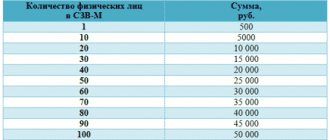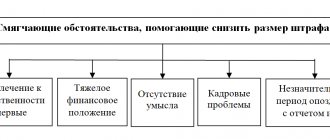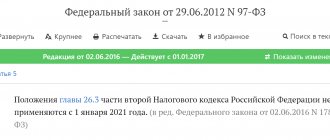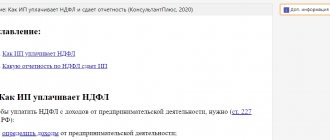Legal basis of the issue
The main legislative acts that should be followed are:
Tax Code of the Russian Federation. In addition to indicating the deadline for filing an application, the document contains a list of penalties for violations.
Federal Law No. 94-FZ of June 25, 2012, on the basis of which amendments were made to the Tax Code of the Russian Federation and other legislative acts.
Letter of the Federal Tax Service No. SA-4-7/5366 dated March 29, 2016. The letter contains information on the imposition of a fine in case of late registration.
Order of the Federal Tax Service of the Russian Federation No. ММВ-7-6/941 dated December 11, 2012, establishing application formats for individual entrepreneurs and legal entities.
Loss of the right to use PSNO – is there a choice of taxation regime?
It may seem that this decision is not as relevant for taxpayers as it could have been back in 2021. This is partly true.
Let us recall that as of January 1, 2017, the reasons and consequences of an entrepreneur’s loss of the right to work “on a patent” have changed thanks to Federal Law No. 401-FZ dated November 30, 2016. Now, in relation to patents issued after this date, the right to use PSNO will not be lost if the tax has not been paid, has not been transferred in full or late (paragraph 3, paragraph 6, Article 346.45 of the Tax Code of the Russian Federation has become invalid, see Letter from the Federal Tax Service of Russia dated 02/06/2017 No. SD-19-3/ [email protected] ).
Before this date, in addition to the mentioned reasons for the loss of the right to a patent, there were two more in the specified paragraph. They continue to operate, that is, this right is lost:
- if from the beginning of the calendar year the taxpayer’s income from sales, determined in accordance with Art. 249 of the Tax Code of the Russian Federation, for all types of business activities to which PSNO is applied, exceeded 60 million rubles;
- if during the tax period the taxpayer failed to comply with the requirement established by clause 5 of Art. 346.43 of the Tax Code of the Russian Federation, that is, the average number of employees during the tax period exceeded 15 people for all types of business activities carried out by an individual entrepreneur
Another significant change. Previously, upon loss of the right to a patent, the taxpayer was considered to have switched to the general taxation regime. This wording was in paragraph 6 of Art. 346.45 of the Tax Code of the Russian Federation, and official bodies have always, and arbitration courts in many cases, interpreted it as follows: it is necessary to switch to the general regime and, accordingly, recalculate taxes on a failed patent type of activity even if, in addition to PSNO, the entrepreneur in relation to other types of activity applied the simplified tax system or paid the unified agricultural tax.
However, the legality of this interpretation was recently refuted by the Supreme Court of the Russian Federation in Ruling No. 301-KG16-16143 dated January 20, 2017 in case No. A38-7494/2015. Taxes had to be recalculated in accordance with the rules of the taxation regime that was the main one for the entrepreneur.
As of January 1, 2017, disagreements on this matter cannot arise. Now in paragraph 6 of Art. 346.45 of the Tax Code of the Russian Federation expressly states that if the right to a patent is lost, the taxpayer is considered to have switched to the OSNO, USNO or special regime in the form of payment of the Unified Agricultural Tax - depending on which taxation regime he applies.
But there is another taxation regime - in the form of paying UTII. It, like PSNO, is used simultaneously with OSNO, simplified taxation system or payment of unified agricultural tax. Can it be applied to the type of activity for which PSNO was intended to be used, and from the beginning of the period for which the patent was issued?
There is not a word about this in the Tax Code of the Russian Federation. In any case, there are no direct rules governing this issue. However, as it turned out, it is not insoluble. This was confirmed by the Ruling of the Supreme Court of the Russian Federation dated 02/03/2017 No. 307-KG16-14369 in case No. A26-8413/2015.
Registration
First, let's take a step-by-step look at the process of timely filing an application based on the law. First of all, a businessman must decide to switch to the preferential UTII regime. Since this special regime is easily combined with other taxation systems, part of the activity can be transferred to imputation. Therefore, it is imperative to notify the tax service of your decision. Otherwise, the Federal Tax Service will consider the mode in which he worked previously to be assigned to the entrepreneur. It is important that the selected type for UTII corresponds to the list in Art. 346 clause 2 of the Tax Code of the Russian Federation.
Newly registered individual entrepreneurs and legal entities, as well as those already employed, submit an application to the Federal Tax Service for the transition to UTII. Entrepreneurs are given 5 working days for this action in accordance with clause 3 of Art. 346.28 and letter No. SA-4-7/5366 dated March 29, 2016.
Nuances of determining the deadline
Some entrepreneurs do not know from what date to start counting the days for filing an application. After all, the transition may be carried out earlier, and the actual start of activity will be slightly delayed. The application is allowed to indicate the day that the businessman considers necessary. However, you should be extremely careful not to violate legal requirements.
Example. The individual entrepreneur began its activities in the retail trade category on March 15, 2021. He has the right to submit an application within 5 working days. This is subject to accurate and conscientious implementation of the laws. In the application, he can indicate the start date of activity later than the actual one, then the deadline for its submission will also move forward. But there is a danger of delaying too much with filing an application or entering into a deal with documentation during this period. Then the entrepreneur may fall under:
- penalties under clause 1 of Article 116 of the Tax Code of the Russian Federation;
- recalculation according to OSN.
Which of these types of punishment will be more significant depends on the time of delay. In some cases, the fine turns out to be much less than the recalculation.
Exceptions
The general rule is that you need to submit an application and register at the Federal Tax Service branch at the place of business activity. This is stated in paragraph. 2 p. 2 art. 346.28 Tax Code of the Russian Federation. But there are exceptions to this rule. Entrepreneurs engaged in certain areas of activity are allowed to submit an application for registration at the place of residence or location of the enterprise (paragraph 3, paragraph 2, article 346.28 of the Tax Code of the Russian Federation). These types include:
- trade – retail with delivery or distribution of goods;
- placement of advertising information on transport;
- transportation of goods and passengers.
For all activities, whether included in the list of exceptions or not, one application form has been adopted. The only difference is in the categories of taxpayers. According to the order of the Federal Tax Service No. ММВ-7-6/941 dated December 11, 2012 No. ММВ-7-6/941, individual entrepreneurs use the UTII-2 form, and enterprises use the UTII-1 form.
Where to take it
Read:
As a general rule, reports are submitted at the taxpayer’s place of registration. In practice, imputators often operate in several municipalities at once. In this case, you should be guided by the explanations of the Federal Tax Service and the Ministry of Finance:
- Activities are carried out within the same city, but in different districts, each of which has a tax office. Then the UTII declaration should be submitted in the division in which the subject was first registered.
- If the imputation officer works in different cities or regions, then reporting must be submitted separately for each municipality. But if they are served by one tax office, then they need to submit one return.
Submitting applications
You can submit the approved form:
- during a personal visit;
- postal service;
- electronic means of communication.
Each option has its own nuances. When submitting an application to the tax office in person, it is important who submits the form:
- If you are an individual entrepreneur or the head of an organization, then no other documents will be needed. To confirm your identity you will have to present your passport.
- If the case is entrusted to a representative, then he must be provided with a power of attorney with the certification signature of a notary.
Filling out the form is also strictly regulated. If the necessary data is not available, Federal Tax Service employees will refuse registration. The required fields contain the following information:
| IP | Legal entity |
| IP passport details, TIN. OGRNIP. Addresses and codes of economic activity. Signature and date of submission. | Name of company. Passport details of the manager (if a representative, then the information is placed in a special field). TIN. OGRN. Addresses and codes of economic activity. Date, signature. |
Important! Economic activity codes are taken from the Tax Code, and not from the OKVED classifier.
The Tax Code of the Russian Federation contains 14 types of such codes. You must indicate 3 codes and 3 addresses on one sheet.
The Federal Tax Service specialist marks the acceptance of the application, the date and his signature. If the applicant wishes, he prepares the balek in two copies in order to receive on the second
tax service mark.
Getting a response
After 5 days (working days), if there are no reasons for refusal, the Federal Tax Service confirms the registration. To do this, the taxpayer is issued a notice of assignment of UTII status (clause 6 of article 6.1, paragraph 1 of clause 2 of article 84, paragraph 2 of clause 3 of article 346.28 of the Tax Code of the Russian Federation).
Legal entities receive form 1-3 Accounting, and individual entrepreneurs receive form 2-3 Accounting. The forms were approved by Order No. YAK-7-6/488 dated August 11, 2011. Sample forms are provided in Appendix 2 to the order for organizations and in Appendix 7 to the order for individual entrepreneurs. They reflect the taxpayer’s right to use preferential treatment.
Types of fines
If the application is not submitted in a timely manner, the taxpayer will be forced to pay a fine of 10,000 rubles on the basis of Part 1 of Art. 116 of the Tax Code of the Russian Federation, but the amount can be significantly higher. A fine is charged in the following cases:
| Option | Size |
| Federal Tax Service employees recorded the implementation of activities without filing an application for UTII. | Accrual of a fine amount from 40,000 rubles. This is the minimum size, the maximum is not established by law. It will be calculated in the amount of 1% of the income received during work without registering the entrepreneur (Clause 2 of Article 116 of the Tax Code of the Russian Federation). The interest is calculated on the documented amount of income. |
| The businessman independently notified the tax office about the delay and filed an application. | This case provides for a fine of 10,000 rubles. |
Important! If a violation is detected, the tax office has the right to punish the entrepreneur, but not the obligation.
This suggests that they may or may not be held accountable.
Fund sanctions against individual entrepreneurs
In addition to the tax inspectorate, control over accounting is carried out by extra-budgetary funds. Similarly, with the Federal Tax Service, sanctions are levied for failure to submit information, reporting and non-payment of contributions.
Fund inspectors resort to imposing fines:
- If the deadlines for payment of contributions are violated, a penalty will be charged.
- If you refuse to submit the required forms and information, you will be charged 200 rubles for each document not received by the fund.
- Late payment due to an understatement of the base is punishable by a fine of 20% of the unpaid contribution on time.
- If reporting with accrued contributions is not submitted on time, a fine will be charged in the amount of 5% of the unpaid amounts for each month of delay. The maximum sanction amount is 30% of non-payment.
The majority of violations are identified during inspections. Control authorities use programs that automatically monitor taxpayer violations. Based on the identified data, inspectors order desk and on-site inspections.
Important! Control authorities can apply sanctions only within 3 years from the period of violation. Any earlier date is subject to the statute of limitations.
What to do if a fine is awarded? The individual entrepreneur must pay the amount to the budget within the period specified in the decision or requirement of the control authorities. Paying sanctions is different from paying taxes. The amount must be paid taking into account the BCC payment. The payment order must indicate the document and its date on the basis of which the fine is paid.
Every song starts with music. Likewise, the transition to UTII, a special tax regime, promises many advantages for many businessmen. It is beneficial in the provision of household services, retail trade and many other types of business activities. The tax is calculated solely taking into account physical indicators and basic profitability.
However, a taxpayer who chooses imputation must also remember about the penalties in the form of fines that will threaten him in case of failure to fulfill his obligations. You can calculate the penalty for UTII 2018 yourself to understand how much you will be required to pay to the state if you play hide and seek with it and do not pay the tax on time. The amount can be quite large.
Deadlines for payment of single tax
For your convenience, we have prepared a document that contains all payments and reports for businessmen on UTII in 2021.
If you are overdue for even one day, you will have to pay a penalty. They are calculated at the rate of 1/300 of the refinancing rate of the Central Bank of the Russian Federation.
Starting in 2021, sanctions for LLCs have been tightened - if the debtor does not come to his senses within a month, from the 31st day of delay, penalties will be calculated based on 1/150 of the refinancing rate.
In addition, an irresponsible businessman faces a fine in the amount of:
20% of the unpaid tax amount;
40% if it is proven that you deliberately decided to avoid paying.
What about mitigating circumstances? What if you were abducted by aliens or for other reasons could not pay on time? Your salvation is in paragraph 1 of Article 112 of the Tax Code of the Russian Federation.
The list contains such mitigating points as:
Difficult personal and family circumstances;
Offense under the influence of threat or official dependence;
Difficult financial situation;
Other circumstances.
If there is at least something on the list that could justify you, the size of the fine will be reduced by at least 2 times. They won’t take your word for it; innocence must be proven, and this is quite difficult to do.
But there are options. For example, you can submit a document confirming the need to leave the country (and just in time to pay the tax) or a certificate from the hospital about the operation performed.
For business owners on UTII it will help to report to the Federal Tax Service and pay a single tax. With us, you will do everything on time and you will definitely not need to calculate the penalty for UTII in 2021.
To insure themselves in case of force majeure, some entrepreneurs make quarterly overpayments. Of course, no one has extra money, but a reserve of funds in a personal account with the tax office can come in handy. The funds will be credited as taxes are calculated. This is more profitable than paying a fine or penalty. The overpayment can be refunded or applied to another tax.
Stay up to date with the latest rules and innovations in business; online accounting has all the information you need.
In our difficult times, not a single taxpayer can be immune from tax sanctions. This most often occurs because an entrepreneur or citizen is unaware of their reporting obligations, as well as in connection with regular updates to the provisions of the tax code and other legal acts. The most common fine for non-compliance with tax laws is a fine under Article 119 of the Tax Code of the Russian Federation for late submission of tax returns.
Reference: Article 119. Failure to submit a tax return (calculation of the financial result of an investment partnership).
1. Failure by a taxpayer to submit a tax declaration to the tax authority at the place of registration within the deadline established by the legislation on taxes and fees
shall entail the collection of a fine in the amount of 5 percent of the unpaid amount of tax subject to payment (surcharge) on the basis of this declaration, for each full or partial month from the date established for its presentation, but not more than 30 percent of the specified amount and not less than 1,000.00 rubles.
2. Failure by the managing partner responsible for maintaining tax records to submit a calculation of the financial result of the investment partnership to the tax authority at the place of registration within the period established by the legislation on taxes and fees - entails a fine in the amount of 1,000.00 rubles for each full or partial month from the date established for its presentation.
If you carefully read paragraph 1 of Article 119 of the Tax Code of the Russian Federation, you should have paid attention to 3 important points:
firstly, the larger the tax amount, the higher the fine (5% of the tax amount); secondly, the longer the delay, the larger the fine (for each full or partial month); and thirdly, the minimum fine is 1,000.00 rubles, and the maximum is 30%, i.e. The fine for “zero” declarations is 1,000.00 rubles!
Let me give you a couple of examples so that everyone can understand what we are talking about:
1. A citizen sold personal property in 2011, for example: a car, for 300,000.00 rubles. He purchased this car in 2009 for 350,000.00 rubles. The citizen did not receive any income from this transaction, there was a loss, but since the citizen owned the property for less than 3 years, in accordance with the tax code he was obliged to submit a tax return in form 3-NDFL no later than April 30, 2012. The citizen did not know that he needed to submit a declaration. In May 2012, he received a letter from the tax office demanding that he report on the transaction and submit a declaration. The citizen submits the declaration on May 25, 2012, i.e. not within the period established by law. The amount of tax on the said declaration is zero, but in accordance with Art. 119, paragraph 1 of the Tax Code of the Russian Federation, he faces a fine of 1,000.00 rubles.
2. An individual entrepreneur filed a VAT return for the 1st quarter of 2012 not on April 20, but on May 25, 2012. The amount of tax that must be paid is 20,000.00 rubles. We calculate the amount of the fine: the “delay” was 2 months (one full and one incomplete), and the fine will be 10% of 20,000 rubles, i.e. 2,000 rubles.
What to do in this situation? Options:
- voluntarily pay the fine; — try to reduce it by at least two times; - do nothing and wait for the bailiffs to arrive;
For obvious reasons, we are not considering the first and third options, but we will consider the second option with a reduction in the fine in more detail:
So, you were called to the tax office, where, against signature, you were familiarized with the Tax Audit Report. From the moment the act is signed, you have 14 working days to write a petition to reduce the fine. The hope that the fine will be reduced is provided by Article 114 of the Tax Code of the Russian Federation, paragraph 3:
Article 114. Tax sanctions
3. If there is at least one mitigating circumstance, the amount of the fine shall be reduced by no less than two times compared to the amount established by the relevant article of this Code.
The concept of “mitigating circumstances” is partially given by paragraph 1 of Article 112 of the Tax Code of the Russian Federation:
Article 112. Circumstances mitigating and aggravating liability for committing a tax offense
1. The following are recognized as circumstances mitigating liability for committing a tax offense:
1) commission of an offense due to a combination of difficult personal or family circumstances;
2) commission of an offense under the influence of threat or coercion or due to financial, official or other dependence;
2.1) difficult financial situation of an individual held accountable for committing a tax offense;
3) other circumstances that may be recognized by the court or tax authority considering the case as mitigating liability.
Subparagraphs 1, 2 and 2.1 are more or less clear, but I will tell you about subparagraph 3 of paragraph 1 of Article 112 of the Tax Code of the Russian Federation in more detail. The most common “other mitigating circumstances” are:
1. Bringing to tax liability for the first time; 2. The presence of dependents on the entrepreneur (dependents include minor children up to 18 years of age inclusive or up to 23 years of age, provided that the children are enrolled in full-time education);
The more such circumstances you indicate in your application, the greater the likelihood that the fine will be reduced not by 2 times, but by a larger amount. Below I will give an example of a petition that I recently prepared for one of my clients, who forgot to submit a UTII return for the 4th quarter of 2011. By the way, her fine was reduced by 4 times! (full name and other passport details have been changed).
To the head of MRI No. 13 for the Kirov region, O.A. Vershinin.
from individual entrepreneur Ivanova Anatasia Aleksandrovna, TIN 432912345678, living at the address: Kirov region, Slobodskaya, st. Sovetskaya, 301, apt. 102
MOTION to reduce penalties under Act No. 51-43/17504 dated 03/11/2012
When making a decision to bring me to tax liability for failure to submit a declaration on the single tax on imputed income for the 4th quarter of 2011 within the established time frame, I ask you to take into account the following mitigating circumstances:
1. This is the first time I have been brought to tax liability for committing a tax offense. 2. I did not carry out business activities in 2011, and did not know that I had to submit a “zero” tax return. 3. I have 2 dependent young children: born in 2006. and born in 2007 4. I undertake to submit tax reports in a timely manner in the future, to pay taxes in full and on time.
Based on the above, I ask you to reduce the amount of penalties under Article 119 of the Tax Code of the Russian Federation.
Appendix: 1. Birth certificate of children - 2 pcs. 2. Order of the Administration of Slobodsky on the establishment of guardianship. 3. A certificate from the bailiff service stating that he does not receive alimony.
IP Ivanova A.A. ___________________
This is where I end the article. I hope you will not need it and all tax reporting will be submitted on time. If you have any questions, feel free to ask them here in the comments, I’ll try to help everyone!
Grounds for punishment
Formal grounds for imposing a fine arise from the Federal Tax Service when filing a UTII declaration when there has been no application for registration. If after this the entrepreneur does not receive any claims over several reporting periods, then we can assume that he was recognized as a de facto UTII payer. After all, the application serves as a way to begin monitoring the payer’s fulfillment of tax obligations. And if control is already carried out after filing the first reporting declaration, then in this case you can safely challenge the imposition of a fine.
According to E.I. Vyaznikova, an employee of the Moscow Federal Tax Service, businessmen often miss the deadline for submitting an application for registration due to a delay in starting their activities. They believe that they acquire the status of a UTII taxpayer only after starting practical activities or filing a declaration. The department's employees are loyal to many violators, but they urge you to better study the legislation so as not to be subject to fines. In many cases, the fine is still less “traumatic” for commercial activities than recalculation according to the OSN. Therefore, you should not delay submitting your application for too long.
What sanctions are imposed for failure to submit a report on time under the Code of Administrative Offenses of the Russian Federation?
Violation of tax laws entails not only tax sanctions, but also administrative liability. In case of failure to submit a tax return, the provisions of Art. 15.5 Code of Administrative Offenses of the Russian Federation.
According to Art. 15.5 of the Code of Administrative Offenses of the Russian Federation, officials (responsible for submitting reports and paying taxes) may be given a warning or imposed a fine, which ranges from 300 to 500 rubles for each violation.
NOTE! According to the Code of Administrative Offenses of the Russian Federation, fines must be paid within 60 days from the date of the decision on the offense. Such fines in case of non-payment may be collected through the courts. If the case is about non-payment of a fine under the Art. 15.5 of the Code of Administrative Offenses of the Russian Federation has reached the court, then by decision of the judge another fine may be collected, 2 times the original amount, but not less than 1000 rubles. The following may also be prescribed:
- administrative arrest for up to 15 days;
- forced community service lasting up to 50 hours.
It should be remembered that in certain cases (resulting in a shortfall in tax receipt by the budget in an amount defined as particularly large), in addition to administrative liability, criminal liability may also be applied.
You can find out in detail what and when criminal liability is imposed on negligent taxpayers.
Errors during registration
Errors made by the taxpayer are the reason for the imposition of penalties. The most common ones include:
| Error | Correction option |
| Lack of application for registration as a UTII payer. | An entrepreneur must submit an application independently before submitting the first reporting declaration. |
| Incorrect completion of the application form. | Correct and completely fill out all fields of the form necessary for the application to be accepted by the tax office. |
| Submitting an application form that does not comply with legal requirements. | Resubmit the application in the appropriate form. |
Question No. 1. Should I file an appeal against the tax authorities' decision in an administrative or judicial manner?
If the fine has already been assessed, then an appeal, most often, does not give the desired result. It will not be possible to prove the illegality of the Federal Tax Service's decision. You can submit an application for the use of UTII from 01.07.2021. But this option requires reporting before this date under the OSN and the second disadvantage is that it will not be possible to include a deduction for the purchase of cash registers in the declaration.
Question No. 2. Can tax officials issue a fine under two articles at once (clause 1 and clause 2 of Article 116 of the Tax Code of the Russian Federation)?
This action will be illegal. Simultaneous punishment for late filing of an application and conducting activities without accounting is contrary to the requirements of the law. In the context of a violation in the form of conducting unregistered activities, there is already a violation in the form of failure to submit an application for registration. This results in double jeopardy for one offence.
The entrepreneur was allowed to use imputation
It is clear that in the case under consideration, the entrepreneur came to the conclusion that such a transition was still more profitable for him than paying taxes retroactively according to the rules of the general taxation regime. But I encountered another obstacle.
Tax authorities did not accept UTII declarations for the period for which the entrepreneur took out a patent. They sent him a notice in which they indicated that the entrepreneur submitted these declarations unlawfully, since he is considered to be using OSNO during the validity period of the patent and must submit personal income tax and VAT declarations, which he did not do.
In this regard, transactions on his bank accounts were suspended against the entrepreneur, which he challenged.
The Decision of the Arbitration Court of the Republic of Karelia dated January 22, 2016 in case No. A26-8413/2015 stated: the inspection did not prove that the entrepreneur does not have the right to apply a special regime in the form of paying UTII, including during the period in which he was going to work, but was unable to work on patent. At the same time, according to the court, the Tax Code of the Russian Federation does not prohibit the use by a taxpayer of the taxation system in the form of payment of UTII in the event of loss of the right to use the UTII.
However, this court decision was overturned by Resolution of the Thirteenth Arbitration Court of Appeal dated April 11, 2016 No. 13AP-5833/2016. The cancellation was also supported by the AS ZSO in its Resolution dated July 19, 2016.
The judges argued this cancellation by the fact that in case of loss of the right to PSNO, the Tax Code does not provide for anything other than a transition to the general regime, in support of which letters from officials were cited. No legal significance was attached to the fact that the entrepreneur did not lose his status as a UTII payer.
The position of the judges boiled down to the fact that submitting UTII declarations for the same tax period after losing the right to use the PSNO is unlawful and contrary to current legislation. The actions of the tax authority in terms of extending the right and procedure for paying UTII to previous tax periods were recognized as categorically contrary to the norms of the legislation on taxes and fees.
The entrepreneur had no choice but to contact the RF Armed Forces. As it turned out, he did it for good reason. The Judicial Collegium for Economic Disputes of the Supreme Court of the Russian Federation spoke in his favor, which allows other taxpayers in similar situations to count on the application of the position set forth by the Supreme Court.
The arbitrators stated that the violation of tax legislation was committed by the tax inspectorate and not by the entrepreneur. They indicated that it was the actions of the tax authorities that led to the fact that the entrepreneur considered it possible to apply the taxation system in the form of paying UTII after losing the right to use the PSNO.
True, the judges did not explain whether the entrepreneur was right. But they definitely stated that the conclusion of the trial court about the illegality of the disputed non-normative acts of the inspectorate corresponds to the evidence available in the case and is based on the correct application of substantive law; its decision was upheld. That is, as a result, the Supreme Court of the Russian Federation recognized it as possible in this situation to apply a special regime in the form of payment of UTII in case of loss of the right to use PSNO during the period when PSNO should have been applied.
* * *
So, the entrepreneur was allowed to pay UTII for the period during which he initially intended to work on the patent. The main thing for him was the general taxation regime; the tax authorities insisted on its application, but they failed to prove that they were right.
What should other entrepreneurs do? Unfortunately, the RF Armed Forces never made a clear conclusion: is it still possible to do as this businessman did? However, he fully supported the court decision, in which the court granted such permission to the entrepreneur, that is, he agreed with this permission. Obviously, this is not just a matter of inconsistent actions by the tax inspectorate. Moreover, the possibility of applying a special regime in the form of paying UTII retroactively, as it turned out, itself complies with the law. Only an entrepreneur should evaluate how beneficial this is for him, taking into account not only the savings compared to taxation, which directly depends on the volume of income, but also the presence of losses in the form of fines, albeit with the opportunity to take advantage of mitigating circumstances.
This now also applies to entrepreneurs for whom the main tax regime is not OSNO, but the simplified taxation system or unified agricultural tax. If they lose their right to PSNO, no one will require them to pay personal income tax and VAT, but it may turn out that it is even more profitable for them to be “imputed” for the past period.
This is described in the article “Loss of the right to a patent - better late than never,” No. 2, 2021, p. 51.











